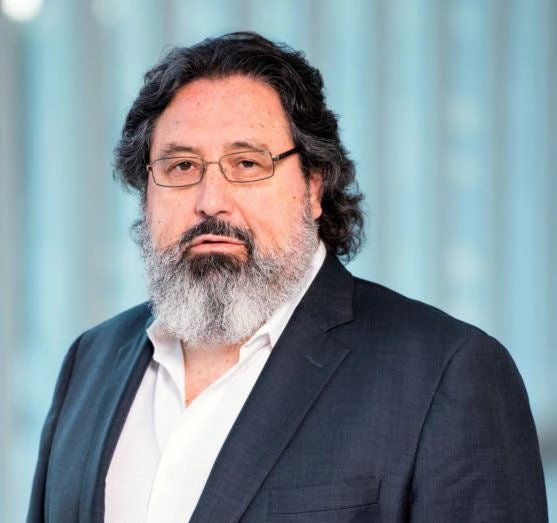
Many of us have vivid memories of the joy and excitement of young adulthood, but this can also be a time of stress, apprehension and fear of the unknown. For many young people, this unease can lead to acute anxiety, severe depression or substance use disorders, if not recognized and managed.
Young people living in environments where they face death and suffering daily, such as in West Africa during the Ebola epidemic of 2014-2015, in post-tsunami or earthquake-affected areas, or in countries experiencing extended conflict and violence, are particularly vulnerable to mental distress and illness.
This year’s World Mental Health Day, on Oct. 10, recognizes this critical time in life with the theme “Young People and Mental Health in a Changing World.” Many changes occur during adolescence and the early years of adulthood, but they are not always acknowledged or treated.
The recent flurry of activity on global mental health, including the Global Ministerial Mental Health Summit hosted by the U.K. Government on Oct. 9-10, 2018, has been promising for addressing some of these concerns. However, there’s still much to be done.
According to the Institute for Health Metrics and Evaluation (IHME), mental and substance use disorders account for 18.9% of years lived with disability (YLDs) worldwide. While effective prevention interventions and treatments exist, the scale of untreated mental conditions affecting young people and adults in communities (as well as in prisons) is severe and widespread globally. Worldwide, it is estimated that 10–20% of adolescents experience mental health conditions, yet these remain underdiagnosed and undertreated. Among the population as a whole, around 80% of people with severe mental disorders in low- and middle-income countries and 40% in high income countries receive no treatment. The inaction to adopt and sustain scaled up efforts to make mental health care accessible for those in need, as an integrated part of health systems and other social support programs, contributes to challenges that affect society at a very high economic cost: school dropouts; alcohol and drug addiction; isolation and homelessness; increased likelihood of being arrested for a crime; and self-harm.
Confronting the health and development challenge of mental health conditions will require additional funding to bridge resource gaps and address low availability and quality of treatment. Indeed, while 7.4% of the global burden of disease, only 2% of national health budgets is devoted to mental health programsHowever, rather than advocating for another “silo” approach, focused on funding for individual health conditions, multi-sectoral funding must be leveraged to scale up mental health interventions, while also promoting efforts to reduce duplication and inefficiencies as well as stigma and discrimination.
As highlighted at various global health events held at the World Bank Group (WBG) since 2016, it is possible to accomplish this. Governments, in accordance with the Addis Ababa Financing for Development Action Agenda, have the responsibility to mobilize additional domestic resources to help achieve mental health parity, as part of the progressive realization of universal health coverage. One way to do this is to increase tax rates on tobacco, alcohol and sugary drinks, which can not only provide a source of additional revenue, but also help generate public health benefits by reducing the risk of noncommunicable diseases.
Cooperation across sectors also will provide an opportunity for multilateral finance institutions such as the WBG, bilateral agencies and philanthropies to use existing service platforms to support the scaling up of mental health prevention and treatment. For example, to address the critical, but often overlooked, association between maternal depression and childhood stunting, support could be provided as part of integrated maternal and child health interventions under platforms such as the Global Financing Facility in support of Every Woman, Every Child (GFF). Investment in other areas, including education and social protection, could be utilized to respond to the unique needs of youth and other vulnerable groups, using initiatives such as the WBG’s Human Capital Project. This is an important consideration as the different dimensions of human capital complement each other, starting at an early age; e.g., proper nutrition and stimulation, in-utero and in early childhood, have shown to improve people’s physical and mental well-being, and contribute to development of cognitive and socioemotional skill.
Similarly, integrating mental health into wellness programs in the workplace can help leverage funding from firms and enterprises as a sound investment resulting in significant benefits for workers, their families and employers, improving productivity and competitiveness. Multi-sector programs used for the reintegration of displaced populations and refugees in post-conflict and post-disaster societies, such as those funded under the WBG’s IDA and IBRD windows, could help mainstream and scale up mental health interventions and related social services among these vulnerable and at-risk populations. Microcredit schemes, such as Rise Asset Development in Canada, which provides low-interest small business loans, training and mentorship to entrepreneurs with a history of mental health or addiction challenges (including former prisoners), could be supported to facilitate the reintegration of those with mental health conditions back into the community.
Dedicated accounts, such as the International Finance Facility for Immunization (IFFIm), are another example of an innovative approach that could be used to mobilize additional funding to scale up global mental health services. This facility, which was established in 2006 to rapidly accelerate the availability and predictability of financing for immunization programs, uses long-term pledges from donor governments to issue “vaccine bonds” in capital markets, thereby making substantial funding immediately available for these programs.
These various approaches should be explored and utilized, since improving lives by addressing mental health conditions is a moral obligation for all those concerned with sustainable development. As was noted by Canada’s Minister of Health, Ginette Petitpas Taylor, during the 2018 WBG-IMF Spring Meetings: “Almost no one in society is left untouched by mental illness. Directly or indirectly, sometimes without even knowing it, mental illness affects nearly everyone at some point in their lives.” It is time, therefore, to deliver results, including for our young people.
Related
WBG Video: Making Mental Health a Global Development Priority
World Bank Group Global Mental Health
Moving the needle: mental health stories from around the world
Moving the needle: mental health stories from around the world - summary report of symposium
Healthy brain bonds: is this a feasible option?
Out of the Shadows: Making Mental Health a Global Development Priority
WBG Video: Making Mental Health a Global Development Priority
Global Financing Facility
Human Capital Project



Join the Conversation